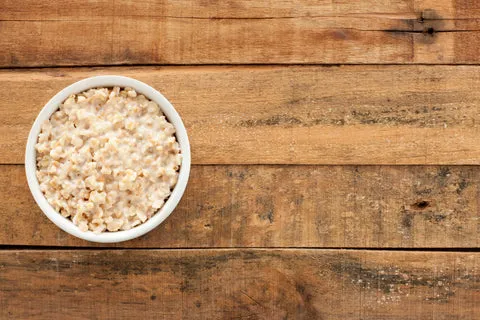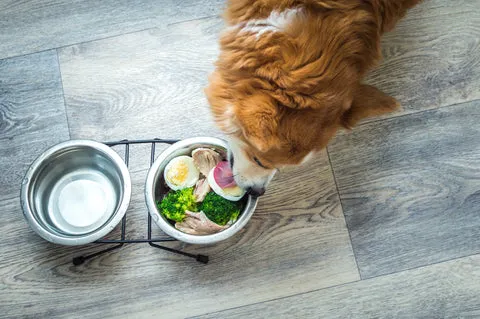When your canine companion isn’t feeling their best, it can be distressing to witness, especially if they lose interest in food. Just like humans, dogs often experience a loss of appetite and digestive discomfort when an upset stomach strikes. Providing them with the right nourishment is crucial not only to comfort them but also to support their recovery and boost their energy levels.
This comprehensive guide will explore the best foods to offer your dog when they have an upset stomach, focusing on easily digestible, bland options that can help soothe their digestive system. We’ll also touch on long-term dietary solutions for dogs prone to sensitivities or allergies, ensuring your furry friend maintains optimal health. Remember, while these suggestions can provide relief, persistent sickness warrants a visit to your veterinarian for a professional diagnosis and treatment plan. Understanding what can dogs eat when they are sick is the first step towards helping your pet feel better.
Understanding Your Dog’s Upset Stomach
Before diving into specific food recommendations, it’s important to recognize the signs of an upset stomach in dogs, which can include vomiting, diarrhea, lethargy, loss of appetite, abdominal pain, or excessive drooling. The underlying causes vary, ranging from dietary indiscretion (eating something they shouldn’t have), sudden diet changes, stress, or even more serious medical conditions.
For mild cases, a temporary bland diet can often help. However, if symptoms are severe, prolonged, or accompanied by other worrying signs (like fever, extreme weakness, or blood in vomit/stool), immediate veterinary attention is essential. Always consult your vet if you are unsure about your dog’s condition or what to feed them.
Top 10 Vet-Recommended Foods For Dogs With An Upset Stomach
When your dog’s stomach is feeling queasy, a plain, bland diet is typically the safest and most effective approach. The goal is to provide easily digestible nutrients without irritating their sensitive digestive system further. Here are ten excellent options:
1. Boiled White Meat (Chicken or Turkey)
 Plain boiled chicken for a sick dog
Plain boiled chicken for a sick dog
Lean protein is a cornerstone of a bland diet for dogs, and plain boiled chicken or turkey breast is an ideal choice. It’s low in fat and incredibly easy for their digestive system to process. The protein helps them regain strength without causing additional upset.
Preparation:
- Rinse the meat thoroughly under cold water.
- Remove all skin and bones to prevent choking hazards and reduce fat content.
- Place the meat in a pot, cover with water, bring to a boil, then simmer for 15-20 minutes until thoroughly cooked.
- Drain the water, let it cool, and shred or cut the meat into small, bite-sized pieces. Serve alone or mixed with white rice.
2. Plain White Rice
A common component of many commercial dog foods, white rice is an excellent binding agent for loose stools and provides easily digestible carbohydrates for energy. While brown rice is more nutritious overall, its higher fiber content can be harder on an upset stomach, making white rice the preferred choice for sick dogs due to its blandness and ease of digestion.
 Collie looking longingly at a bowl of white rice
Collie looking longingly at a bowl of white rice
Preparation:
- Rinse the rice under cold water to remove excess starch.
- Combine one part rice with two parts water in a saucepan. Bring to a boil, then reduce heat to a simmer.
- Cover and cook for approximately 18 minutes, or until all water is absorbed. Do not add salt or seasonings.
- Allow to rest and cool before fluffing with a fork and serving.
3. Cooked Sweet Potatoes
Sweet potatoes are a powerhouse of vitamins (A, C, B6) and dietary fiber, all while being incredibly gentle on a dog’s stomach. They provide essential nutrients like calcium, iron, and magnesium, which are vital for recovery. The fiber content can aid in regulating digestion.
 Sliced sweet potatoes on a table
Sliced sweet potatoes on a table
Preparation:
- Never feed raw sweet potatoes, as they are tough to digest.
- Peel the sweet potatoes, chop them into chunks, and boil until very soft.
- Drain the water, mash them thoroughly, and allow to cool completely before serving.
4. Pumpkin (Plain Canned or Cooked)
Pumpkin is renowned for its digestive benefits, especially for both constipation and diarrhea. It’s rich in fiber, which helps regulate bowel movements, and packed with vitamins that support the immune system.
 Husky dog with a pumpkin slice
Husky dog with a pumpkin slice
Preparation:
- Use plain canned pumpkin (not pumpkin pie filling, which contains sugar and spices harmful to dogs) or fresh, cooked pumpkin.
- Add 1-4 tablespoons of plain pumpkin to your dog’s meal (depending on their size) or serve it alone. Ensure no added sugars, spices, or seasonings.
5. Homemade Bone Broth
Bone broth is a nutrient-dense liquid that can aid hydration and provide essential minerals like sodium, potassium, calcium, and magnesium. It’s incredibly gentle on the digestive system, making it perfect for dogs with an upset stomach or those recovering from illness.
 Puppy licking a bowl of bone broth
Puppy licking a bowl of bone broth
Preparation:
- Use beef or pork marrow bones and/or chicken or turkey bones.
- Place bones in a large pot, cover with a few inches of water, and simmer on low heat for 20-24 hours.
- Strain the broth to remove all bone fragments, fat, and solids.
- Cool completely before serving the liquid. Avoid adding garlic, onion, or excessive salt during preparation.
6. Meat-Based Baby Food
For puppies or very sick adult dogs who refuse other foods, plain, meat-based baby food (Stage 2, typically chicken, lamb, or turkey) can be an appealing and easy-to-digest option. It’s soft, palatable, and provides essential nutrients.
 Doodle puppies eating from a plate of baby food
Doodle puppies eating from a plate of baby food
Important: Always check the ingredient list carefully to ensure there are no harmful additives like garlic powder, onion powder, or artificial sweeteners, which are toxic to dogs. If in doubt, consult your veterinarian.
7. Poached Fish
Fish, particularly white fish like cod or tilapia, is a fantastic source of easily digestible protein and healthy fats. Its strong aroma can often entice dogs that have lost their appetite due to illness. The Omega-3 fatty acids in fish can also help reduce inflammation. If you’re wondering what whole foods can dogs eat, fish is often a good option.
Preparation:
- Poaching is the best cooking method for sick dogs. Place the fish in a pan with water, bring to a boil, then reduce heat and simmer for 10-15 minutes until cooked through.
- Carefully remove all bones and skin.
- Flake the fish into small pieces and let it cool before serving.
8. Plain Oatmeal
Plain, cooked oatmeal, made from rolled oats, can be very soothing for an upset stomach. It’s high in soluble fiber, which can help bulk up stools for diarrhea or alleviate constipation. Oatmeal also contains antioxidants that may help reduce inflammation in the digestive tract.
 A bowl of oatmeal on a wooden table
A bowl of oatmeal on a wooden table
Important: Prepare with water, not milk, as many dogs are lactose intolerant. Do not add sugar, salt, or any other seasonings. Serve in moderation, as too much fiber can sometimes worsen an upset stomach.
9. Plain, Unsweetened Yogurt
Yogurt, especially plain, unsweetened varieties with live active cultures, is rich in probiotics. These beneficial bacteria can help restore the natural balance of gut flora, aiding digestion and supporting overall gut health. It can be particularly helpful for dogs experiencing constipation or antibiotic-related digestive issues.
 Puppy with yogurt on its face
Puppy with yogurt on its face
Important: Ensure the yogurt contains no xylitol (an artificial sweetener highly toxic to dogs) or added sugars. Offer in small amounts to see how your dog tolerates it, as some dogs may be sensitive to lactose.
10. Scrambled or Boiled Eggs
Eggs are a fantastic source of easily digestible protein and can provide a much-needed energy boost for a lethargic dog recovering from illness. They are gentle on the stomach and offer a wide array of vitamins and minerals.
 Dog eating eggs and vegetables from its bowl
Dog eating eggs and vegetables from its bowl
Preparation:
- Scramble eggs without butter, oil, or seasonings, or simply boil them.
- Chop boiled eggs into small pieces.
- Avoid eggs if your dog is actively vomiting, as the fat content, even in small amounts, might exacerbate nausea. They are best for dogs recovering or those with mild diarrhea without vomiting. For a broader perspective, understanding what human food dog can eat can be very helpful.
What Foods Dogs Can and Can’t Eat When Their Stomach Is Upset
Beyond the safe options, it’s equally important to know what to avoid. Always steer clear of spicy foods, fatty meats, dairy products (other than small amounts of plain yogurt), sugary treats, and any foods containing garlic, onion, or xylitol. These can severely irritate an already sensitive stomach or be outright toxic. For a comprehensive list of what to avoid, refer to our guide on what foods dogs can and can t eat.
When To See The Vet
While bland diets can be helpful for minor upsets, it’s crucial to consult your vet if:
- Vomiting or diarrhea persists for more than 24-48 hours.
- Your dog seems to be in severe pain.
- There is blood in their vomit or stool.
- Your dog is lethargic, weak, or unresponsive.
- They refuse to eat or drink for an extended period.
- You notice any signs of dehydration (sunken eyes, dry gums, loss of skin elasticity).
These symptoms can indicate a more serious underlying issue that requires professional veterinary diagnosis and treatment.
Dietary Solutions For Dogs With Chronic Sensitivities or Allergies
Some dogs suffer from frequent upset stomachs due to food allergies or sensitivities. If your dog regularly experiences digestive issues, it’s worth discussing potential dietary changes with your vet to identify and manage the root cause. Often, this involves trying novel protein diets, limited ingredient diets, or specialized formulas.
Hypoallergenic Dog Foods
For dogs with known food allergies, switching to a hypoallergenic dog food can make a significant difference. These foods typically contain a single novel protein source (e.g., duck, venison, insect protein) and a single carbohydrate source, making it easier to identify and avoid allergens.
Cold Pressed Dog Food
Cold pressed dog food is gaining popularity as an alternative to traditional kibble, especially for dogs with sensitive stomachs. This type of dry food is produced at much lower temperatures, which helps to preserve the nutritional integrity of the ingredients. The gentle processing also makes it easier to break down in the digestive system, reducing the workload on a sensitive gut. Many cold pressed options are also grain-free, catering to dogs with grain-related sensitivities.
Insect Protein Cold Pressed Dog Food
An innovative and increasingly popular option for dogs with severe meat-related allergies or sensitivities is insect protein cold pressed dog food. Insects like black soldier fly larvae are a complete and highly digestible protein source, often considered hypoallergenic. They offer an environmentally friendly alternative while providing all essential nutrients. The low purine content also makes them suitable for dogs with specific health conditions.
Raw Frozen Dog Food
Raw food diets, which typically consist of raw meat, bones, organs, and sometimes vegetables, are another approach for sensitive dogs. Proponents believe that minimally processed, natural ingredients can improve digestion, coat health, and overall vitality. However, raw feeding requires careful handling and balancing to ensure nutritional completeness and safety from pathogens. Many raw food options are grain-free and allow for customization to avoid specific allergens. For puppies with sensitive tummies, understanding what human food is good for puppies can provide safe and nutritious additions to their diet.
Conclusion
Caring for a dog with an upset stomach requires patience, careful observation, and a thoughtful approach to their diet. By offering easily digestible, bland foods like boiled chicken, white rice, sweet potatoes, or pumpkin, you can help soothe their digestive system and support their recovery. For dogs with chronic sensitivities, exploring specialized diets such as cold pressed or raw food, particularly those with novel proteins like insects, can provide long-term relief.
Always prioritize your dog’s well-being and consult your veterinarian for persistent or severe symptoms. They can help diagnose underlying issues and guide you in choosing the best nutritional path for your beloved companion, ensuring they return to their happy, healthy selves as quickly as possible.
References
- American Veterinary Medical Association (AVMA)
- Veterinary Centers of America (VCA Hospitals)
- PetMD
- AAFCO (Association of American Feed Control Officials)
- The National Academies of Sciences, Engineering, and Medicine. (2006). Nutrient Requirements of Dogs and Cats. The National Academies Press.
